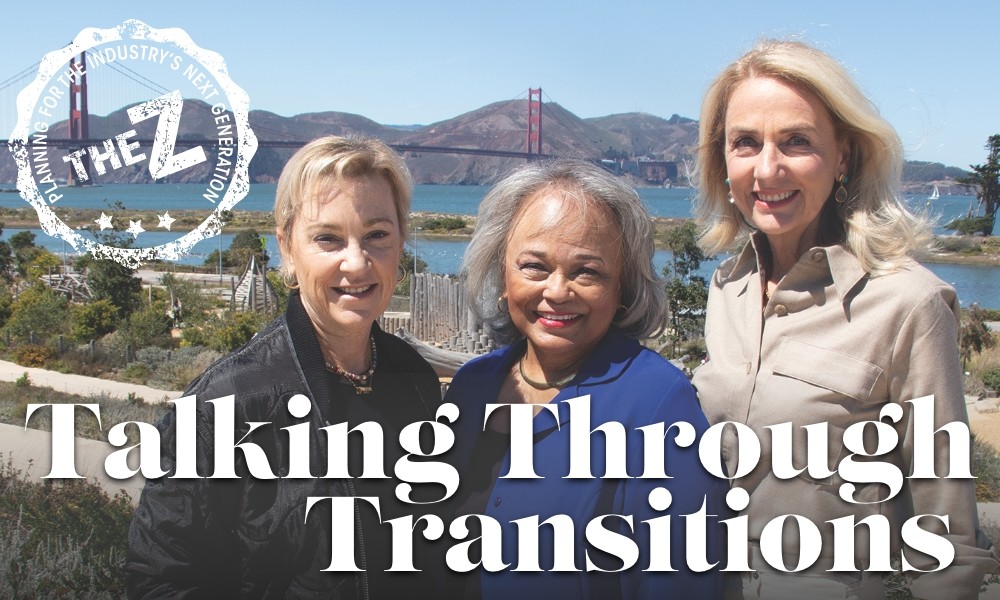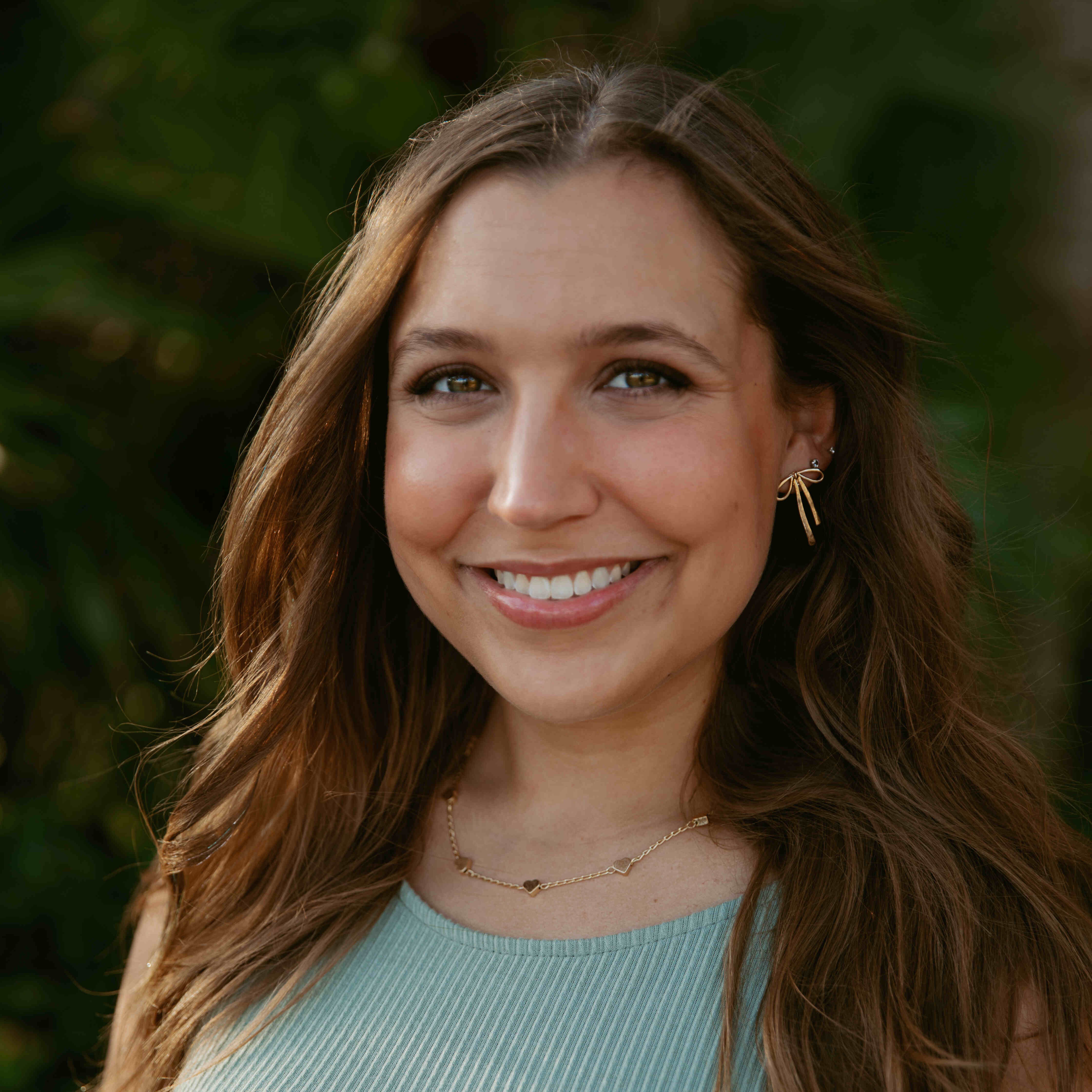It’s funny what one email introduction can lead to in an industry like meetings and events.
Earlier this summer, when a mutual friend introduced me to Deborah Parsons, Donna Rogers and Carolyn Pund, I knew they’d be worthwhile industry connections to form, but I didn’t realize they’d completely shift my outlook on life—for the better.
Here’s how it happened: Deb, Donna and Carolyn were preparing a panel discussion for this year’s CEMA Summit, which took place August 4-6 in Seattle. They wanted to focus their conversation on career transitions and a multi-generational workforce, but a few weeks prior to the event, they decided their panel was missing one key perspective: a young leader’s. They just needed to find someone who’d be a good fit.
Their search eventually led them to me, and after an introductory Zoom conversation, I suddenly had a flight booked to Seattle and a registration confirmation email for CEMA Summit in my inbox.
With the event only a few weeks away, the four of us got straight to work, and the more time I invested into creating a valuable session with Deb, Donna and Carolyn, the more we all realized the conversation we had started together was bigger than we thought. (Deb likes to refer to it as “the appetizer.”)
What started as a 45-minute panel discussion about how senior leaders could give back to young professionals in our multi-generational workforce turned into a vulnerable, authentic conversation about the hardships of the unexpected—in our careers and life in general—and the lessons we can learn from one another when we navigate these transitional periods of life together.
The stories we were sharing with one another—from being forced out of companies after decades of loyalty to questioning what purpose we served in the industry—were stories none of us had necessarily planned to tell. They were stories that filled us with shame, embarrassment and maybe even a little trauma, but once one of us showed vulnerability, the domino effect was unavoidable, and soon enough, we were all talking about the things we never thought we’d feel safe sharing.
Our CEMA Summit session ended up lasting more than an hour, and despite stretching into the lunch period, no one in the audience got up and left. Instead, they remained locked in on the conversation we were having on stage. Some even walked up to us afterwards with tears in their eyes, thanking us for normalizing the fear of the unknown and starting a conversation that had yet to come up in the industry.
That’s when we fully understood the value of talking through transitions.
What I learned from Deb, Donna and Carolyn about the impact of vulnerability and telling tough stories completely changed my perspective on my own life experiences—and how to approach any that will inevitably take place in the future. The conversation they started created such a positive shift in my mindset, and the mindset of those in our audience, that I was inspired to share it with all of you, too.
Now, thanks to three extraordinary women, I think I’m finally ready to be vulnerable, with you and myself.
[Related: Experiencing 24 Hours of ‘Bleisure’ in Seattle as a Meeting Attendee]
Taylor’s Transition
I may not be a meeting planner, but I’ve always had a plan.
By the time I was in middle school, I had my life mapped out. In my head, everything felt perfectly achievable—but life isn’t perfect, and I was naive to think I’d be the exception.
My life looks entirely different than I thought it would (I know, I’m only 24—and very dramatic), but right now, I’m happy. It took a lot of time and self-reflection—and deep conversations with my new industry friends—but I’ve learned to accept the path the universe has carved out for me, and I’m thankful to be able to say I no longer feel like I’ve failed myself.
There was a time, though, when I felt entirely alone, like I was the only person on the planet who knew what I was going through, but that’s because I was too afraid to talk about it. Thanks to Deb, Donna and Carolyn, I’ve come to understand the importance of talking through transitions and the power of vulnerability.
Here’s my story—and how they helped me rewrite it.
Looking Back, Moving Forward
For the first 22 years of my life, I made being a student the biggest part of my identity the same way my classmates made sports a major part of theirs.
Then, I wasn’t a student anymore, and when I let go of that piece of me, I felt like I let go of myself entirely.
A few weeks prior to graduating college, I had a tough decision to make: Move to New York City to study in my dream graduate program or jump headfirst into the workforce and say “yes” to a seemingly perfect job offer.
I chose the latter, giving up my “student” title and taking on the role of “content developer” instead, and while I’ve never regretted my decision, I still question whether I was ready for the transition from college to career.
The terror truly set in on graduation day, when all I could do was cry—not the bittersweet “goodbye” kind of tears, but the kind that’s triggered by fear. I thought I was afraid to not be a student anymore, but what I was really afraid of was change—and failure. For almost a year post-graduation, that fear of failure controlled my entire life.
When I walked across the stage in my cap and gown, I weighed 93 pounds. Not only did I graduate in the depths of an eating disorder, but I graduated without a sense of purpose—and the stress that put on my shoulders manifested both mentally and physically.
A few days after moving back home, I started picking at my skin until I was covered in scabs, scars and open wounds—up and down my legs, across my chest, on my face. It became a coping mechanism for me, and up until a few months ago, I thought there was just something wrong with me.
Then, I spoke on a panel with Deb, Donna and Carolyn at CEMA Summit in Seattle. We were the ones presenting, yet we somehow ended up learning more about ourselves on stage that day. That’s when we started talking through transitions, or major (un)expected changes in life that aren’t all that easy to navigate.
That’s when I realized there wasn’t anything wrong with me—and I was not alone.
[Related: Engagement Without Barriers: How CEMA 2024 Wove in Inclusivity]
The Impact of Transitions
When Deb, Donna and Carolyn helped me understand the impact transitions can make—negatively and positively—I started to reevaluate mine and take it more seriously.
When I got home from Seattle, I sat down at my computer and decided to do some of my own research, hoping to better understand how my transition from college to career affected me.
What I really wanted to understand was why, all of a sudden, had I developed this habit of picking at my skin?
The Cleveland Clinic had an answer: It’s called dermatillomania, “a mental health condition where a person compulsively picks or scratches their skin, causing injuries or scarring” that falls under the category of obsessive-compulsive disorders (OCDs).
A second article from Frontiers in Psychiatry confirmed my suspicions as to why I developed it: “Skin-picking development has been suggested to be preceded by traumatic life events.”
Bingo.
Did my transition traumatize me? Looking back and analyzing my situation with Deb, Donna and Carolyn helped me admit to myself that yes, it absolutely did. And while that was hard to accept, it also helped everything else start to make sense.
There was nothing wrong with me. I wasn’t alone. I had been through a transition I wasn’t prepared for and the impact it had on me was greater than expected—but on the other end of it, I came out even stronger, and I never would’ve realized that without the guidance of three women who helped me ask the hard questions.
They taught me that across the generations, we all experience transitions, and there’s no set timeline for when they happen. These transitions likely have a bigger effect on us than we realize, and in the meetings and events industry, they are happening all over—people take on new roles constantly, others question whether or not it’s time to retire, and recent developments in artificial intelligence (AI) have us all going through a massive industry transition together.
Deb, Donna and Carolyn have each experienced career-related transitions of their own, and because of their vulnerable storytelling, I was able to make sense of mine.
Hopefully, their stories can help you, too (see sidebars below).
[Related: The Z: Understanding the Importance of Mentorship in the Meetings Industry]
Transition Who?
By Deborah Parsons, VP Business Development, MCW Events
Sometimes the universe has to knock twice to really get my attention.
It was March 2020, and we were sliding into the deep end of a pandemic with no idea what it was or how long it would last. I had the added bonus of just finishing a 28-day regimen of radiation and chemotherapy for a cancer diagnosis I didn’t see coming. With zero immunity and two teenagers now on lock down, we were on a wild and scary ride.
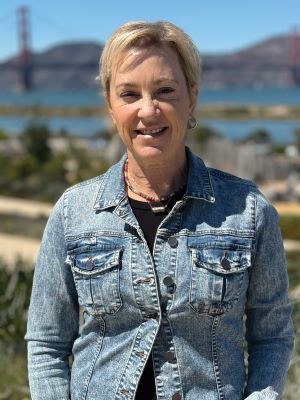
Fast forward to June, and I was grateful to be organizing myself to return to work after a six-month medical leave. I learned on my first day back that I was no longer valued at the company I had helped build for 20 years. We had been acquired three years prior, and I was the SVP of sales and marketing after leading our West Coast office as president for five years. Holy moly. Are you serious? WTF is happening?
Who am I, and where do I go now?
I was radically unprepared for all that followed.
Shame and embarrassment quickly replaced the short-lived joy of knowing it was time to go. Why did everyone stop calling, and was that it for me? Two decades of commitment, performance and loyalty, and then you wake up at 57 years old with a boulder of fear at your feet. I did not understand how much I identified with my title and the structure and purpose that my work gave me. This was a transition that I had not given any thought to.
Where do I find my tribe now? Did I dream that I was successful? Was it only in my head? Damn, I may have cared more than they did.
Good fortune came in fall 2021 when I found myself at the Modern Elder Academy (MEA) in Baja, “the world’s first wisdom school dedicated to midlife transitions.” My luck was magnified when, because of pandemic restrictions at MEA, they turned my weeklong retreat into a month-long sabbatical.
I learned that midlife transitions can be a chrysalis and not just a crisis. I met others who were choosing new paths and re-wiring instead of retiring. It was an unplanned intervention that I was in desperate need of, and it gave me hope and confidence to keep going and to trust that I could dig out and find my way.
I had worn my success like armor, as many of us in the events world do. We tend to be pleasers and ignore ourselves against all odds, and I was finally forced to choose to feel and prioritize my emotions over the armor I wore to mask them.
It is isolating to be set free from a job you adore, and we often hide in shame, which can spiral downwards. My lovability was mistakenly tied to my achievement, and it took me some time to untangle that.
Thanks to wise elders, a curriculum around transitions, a community of folks who were brave and smart, language and resources to help me understand what I was feeling, and rituals to celebrate change, I found my balance.
At MEA, I floated in the pool. I had an open diary for the first time in 30 years. I caught my breath walking miles and miles along the Pacific Ocean and I healed my soul.
I am happily consulting for MCW Events in Seattle and love what I am doing, and most importantly, I am in alignment with the team I support. I would encourage all of us to diversify the places where we get our confidence from in advance of career shifts or changes. Balance your own portfolio of talents and gifts along the way. It can be helpful to be sure you have more than one muscle for success!
[Related: The Z: How to Tell Your Story to Make Yourself an Unforgettable Connection]
From Experience to Impact: Giving Back to the Industry That Shaped Us
By Carolyn Pund, CMM, DES, One More Event
Transitions happen throughout your career. Some are well planned and sought after, some an unwelcome surprise, others a calculated risk, and the worst are downright painful—yet all changes are opportunities for growth. We each decide what our tomorrow looks like after any kind of change.
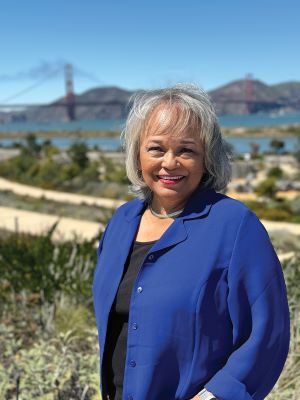
I’ve been in the business events industry since bulk mailings promoted conferences, with the quickest registration technology being a fax machine! I was a pioneer of the “meetings consolidation” concept, building it into a credible Strategic Meetings Management (SMMP) business practice and co-developing the SMM Maturity Model Index. The events industry has seen massive changes. Here we are today trying to discern reality from AI along with effectively using it in events.
Over time, the depth of the relationships created in the industry start to envelop your world. Industry colleagues that you support and those you rely on for success in your job become your work family. In events, you spend a lot of time with your work family.
Personal vacations, non-work-related commitments, even the timing of children are hopscotched in between company and industry events. World events are associated with your program dates. You return from events trying to mimic that amazing hors d’oeuvre or drink. You remember your children’s ages based on how old they were when you were planning that program. For event peeps, we know this all too well—it becomes your life.
Fast forward through years of amazing programs, over-the-top career experiences, world travel and all the good and bad of corporate events to the time you realize you’ve worked most of your life. You’re considering the biggest of all transitions: end-of-career, leaving your corporate job.
The evaluation starts: How will I feel about not managing a team, contributing to program designs or controlling outcomes any longer? Who will I be without a corporate brand under my name on a badge? Are all the colleagues I call friends actually friends, or are they friends for the sales numbers my relationship represents? Will all the invitations stop? Will my opinions in event conversations be valued any longer? Will I have anything relevant to contribute? Should I just turn around and walk quietly into retirement?
Maybe it’s just me, but leaving my corporate role and saying an instant goodbye to the industry just didn’t ring true to what’s inside of me. I’ve invested an equal amount of years in the industry as I have my corporate career. So, for those who may share my view of choosing a slower, hybrid-type exit rather than a “do not return through these doors” airport-like exit, there is currently not a roadmap or model for how to do that well.
What is the best way for Boomers transitioning in the next six years to give back and contribute effectively? Within the industry, should there be an opportunity to do what I’ve coined as “Look back: Give back”—a place that brokers connections and opportunities to share wisdom and contribute? I think it’s worth discovering.
My goal is to stay involved and give back by way of contributing on boards, industry committees, forums and mentoring. At this juncture, I’m not quite sure how long that will be, but I expect that it will align with other transitions in my life—I’ll know when it’s time.
[Related: The Z: Exploring Social Anxiety in the Meetings and Events Industry]
Finding Light in the Dark: How Humor and Industry Relationships Guided My Transition
By Donna Rogers, Director of Convention Sales–West Coast, Visit Salt Lake
It was March 6, 2020, when all non-essential large gatherings were canceled in San Francisco, prompting the cancellation of our biggest local industry event in the Bay Area, MPINCC ACE. This was our reality check, a moment when everything changed.
I soon became a casualty of the devastating Covid-19 impact, like so many others. I was furloughed and eventually laid off from my regional position with Canyon Ranch—a role where I had envisioned building a long-term future. Prior to this, I had shaped my 20-year journey on the sales-supplier side, working with luxury brand hotels, most recently holding global and regional positions with Fairmont, Venetian Palazzo and Canyon Ranch.
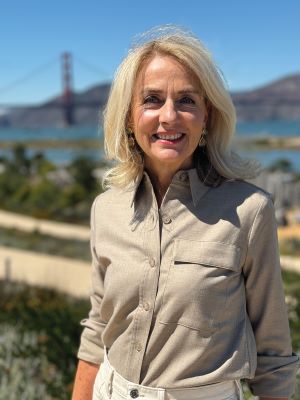
The fear of an uncertain future weighed heavily on me. It was a period of profound doubt and vulnerability, a transition I was not expecting or prepared for. Each day felt like a battle to reclaim a sense of self-worth as I found myself questioning whether all my past successes were real, and asking, “Am I good enough to do it again?”
During this time, my industry text group became an unexpected source of support. What started as casual conversations quickly turned into messages flying back and forth by the minute. As our jobs disappeared one by one, we leaned on each other, sharing stories that ranged from heartbreaking to humorous. We found comfort in laughing together, offering family updates, cooking tips and even thrifty shopping advice—like where to find the best deals on wine. Wishing each other a happy “same day” became a small-but-meaningful ritual as we navigated this challenging time together.
Social media memes offered a welcome and funny distraction, like the newly named “Quarantini” drink that made us snicker as we coped with panic and disbelief during the early days of shelter in place. The hilarious guy who invented his own way of working out on the “treadmill” by putting dish soap on the floor helped us through the unease when our routines were dismantled, and the toilet-paper-hoarding gifs provided lightheartedness as we tried to make sense of our anxiety.
Amidst the chaos and uncertainty, humor and community became a means of coping, reminding us of our shared humanity and the strength we find in each other. I leaned in and was compelled to explore opportunities with a renewed sense of purpose. It led me to a new role with a startup company (I’m a Shark Tank groupie) where I introduced zero-waste bottled water to the hospitality industry—a position that matched my sustainability values.
Yet, the unwavering support of my text group ultimately guided me to a role with a destination marketing operator, Visit Salt Lake. This position not only aligns with my sustainability and wellness values but also perfectly fits the client base I’ve spent so many years cultivating. Today, I’m fortunate to have a supportive team that believes in creativity and community.
I faced my 2020 transition with resilience and a network of supportive friends who knew how to turn even the toughest days into a reason to laugh.
[Related: The Z: Things I Didn’t Learn About Work Life in College]
Transitional Takeaways
Deb, Donna and Carolyn may have shared stories about transitions in their third act, but we often overlook that transitions like this happen to everyone at various stages throughout life.
Insights like the ones these senior leaders shared about the realities of being let go from a role you love, questioning whether or not it’s time for a change and being forced into one when you aren’t necessarily ready are incredibly helpful and empowering to hear—especially as a member of Gen Z.
When senior leaders and industry professionals take the time to highlight and celebrate life events, like transitioning to an empty nest or planning a graceful career exit, they make it easier for young professionals to recognize these transitions as important and ask for help getting through them—without shame or embarrassment.
By being open, honest and vulnerable about their career and life experiences, Deb, Donna and Carolyn broke down the barriers we built around ourselves out of shame, embarrassment and fear. They showed me and our audience at CEMA Summit what’s possible when we face our challenging transitions head on with the confidence of knowing we will overcome them.
These transitional stories add so much value by way of mentoring tomorrow’s talent through a willingness to show vulnerability and share hard truths and experiences, giving young professionals a hopeful glimpse into our futures.
So truly, on behalf of all Gen Zers—and anyone going through a transition right now—to those of you who do talk about what matters, thank you for showing us the way.
Logging out with love,
Taylor
Have a question about Gen Z or a topic you’d like to learn more about? Share your thoughts with Taylor at taylor.smith@meetingstoday.com, on Instagram at @tay__writes or on X at @taywrites.
Mission Statement: "The Z: Planning for the Industry’s Next Generation" is a Meetings Today column discussing the meetings and events industry’s newest and youngest members—the incoming Generation Z. Written by Meetings Today’s Taylor Smith, a member of Gen Z herself, The Z explores how to welcome, work with, understand and plan for the industry’s next wave of professionals while serving as a guide for members of Gen Z themselves, planners and attendees alike.
Read more from "The Z: Planning for the Industry’s Next Generation."



